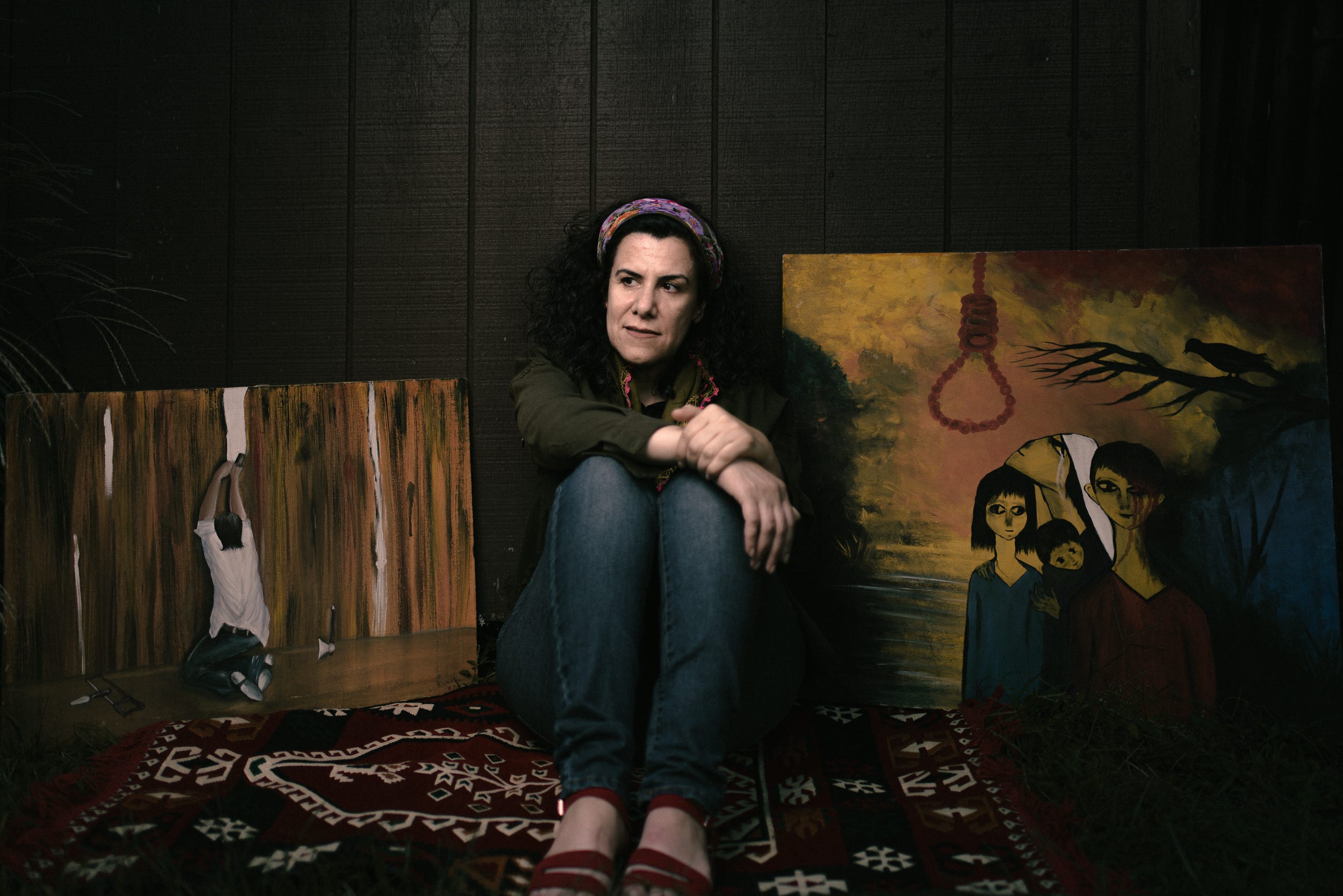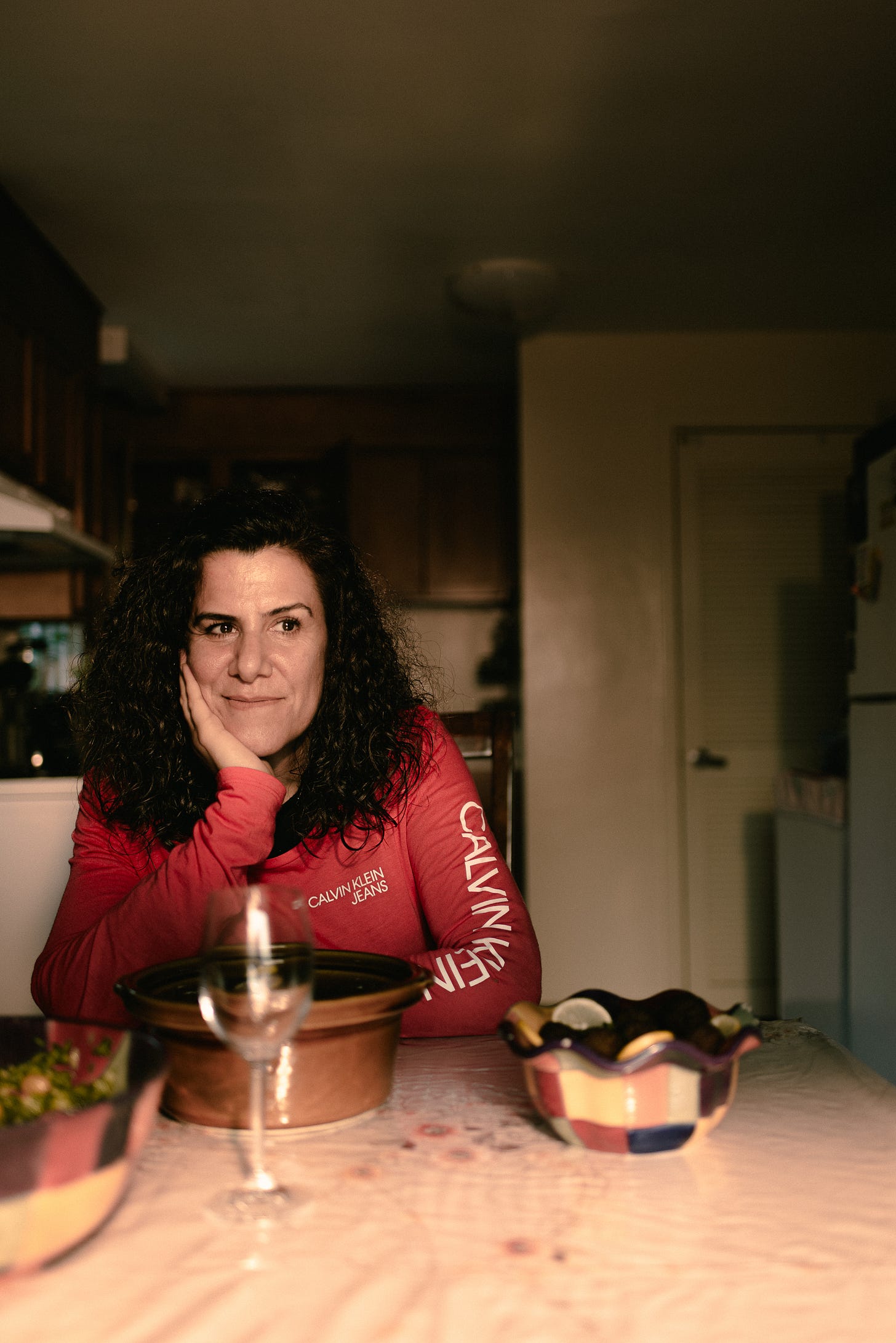The fact that she lets me use her name and her image is a mortal courage that is easy to admire and that few likely possess. Roushan has a type of yeah-I’ve-seen-some-shit casual toughness that comes from fleeing your home country under cover of night after years of war and displacement.
“I painted this in Morocco, after we fled Syria.”
She grips a large canvas. A mother with a baby wrapped to her chest stares at a noose dangling from out-of-frame with wounded children flanking her sides. The stark silhouette of a raven sits overhead on a leaf-bare tree. Colors of fire and blood and ash fill the lines and corner.
She gestures to the other canvas. “This is of the courageous students who protested the regime. I painted him trying to tear down a wall between Syria and the rest of the world. There is an ax next to him, on the ground. You can see the wall is dirty and it is broken on the inside. And on the other side, it is very light. The other side is very different from Syria."
Art is how we let the parts of life that are too immense to contain back into the world. It is a release valve. When people are cut by the ruthless edge of mortality, sometimes we bleed onto a canvas. And sometimes we show that to the world to make sure we remember what was done to us, or by us.
But, we have a habit of hanging the art of war in our minds.
I admit, even making these portraits is a kind of privilege. Which was not something I thought about while enjoying the dishes Roushan prepared for our time together.
When I’m on a shoot, I’m there to know my subject and to do them honor with the photography. It wasn’t until later that I had time process the implications of what she had endured.
To discuss the displacement and terror of another human, to study that form, to reflect—these are all luxuries for those of us familiar with watching horror unfold on a screen. Our news cycle thrives on the abuses of humanity and we digest that slurry of injustice—if not comfortable with brutality then at least desensitized to it. Afflicted just long enough to say we didn’t look away.
We can weave our morality at a leisurely pace, debate what kind of murder is justified, and pray for them—though sometimes that prayer sounds something like thank god that isn’t us—and that particular kind of prayer is notoriously earth-bound even if it is true.
If “witness” can be defined as one who testifies, that means our habit of turning away is a kind of perjury and though I do not have the answer to the affliction of humanity—I’m sorry if all this writing suggested otherwise—bearing witness must be a part of it.
(Images from the series “I Am Your Neighbor”, taken in 2020)





